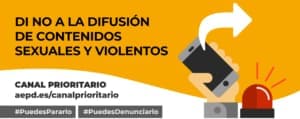In the world of professional advicory we are used to deal with all kinds of profiles. From professionals with undergraduate and graduate degrees and many years of experience in their field, to workers, on manual work , who have all the skills and experience «under their belt», multidisciplinary and not afraid to work in other fields, either via call or by need. Thus, throughout our experience, we have identified what one of my colleagues named as «titlitis», a term that I will now provide to point out the obsession by organizations to adhere stricticlty on academic degrees obtained, and above all, fear of job seekers getting out of the strict and related to their degree format. Like they do not consider the value that provides a more versatile and deep part of it.
We come, fortunately or unfortunately, on a heiress of a Fordism business culture, that Henry Ford called as the mechanisms of the system of productions simplifies movements, preventing the worker from performing arguments and limiting them on edless repeats. It was he who , on one occasion, coined the famous complaint “Why is it when I hire a pair of hands, I get a human being as well?” This incites us and archaic thinking still serving notice that if a company give you to understand that we are more than our productive force , we will be a problem. However, this has long ceased to be. Currently, we live in a deep dynamical environment which constantly changes, both politically and economically, connected by technologies which are constantly being updated and always looking to detect the most innovative solutions in the most timely manner as possible, even trying to anticipate the need to future clients on guessing what will be and how will it be to satisfy them.
In this context, looking forward, not only to survive but to improve and grow, a company needs the potential of each and every one of its members, the length and breadth of the hierarchy, without ignoring the ideas and resources therefore only considering positions or which are the tasks involved at that time. This idea moves in a large scale, that in certain academic circles, it is predicted that in the future the concept of » job» will disappear, and each organization will appoint its members those tasks for which they need them, with these tasks changing over time and adjusted to the circumstances of the moment. Thus, it would be advisable not to use the resume as a mask, but as a mirror to reflect much more than the specific degree or previous experience which has been obtained. A person is much more than that, and can bring to the organization a plurality of knowledge, skills and concerns which will certainly need at some point.
Recently, a young graduate in Engineering wondered whether to include in its´ curriculum Yoga and Tai Chi courses, as well as studying music and some other concerns about the model of global society in which the person had formed. My answer was a resounding «Yes. These kinds of things are what will differentiate you from others with the same technical profile» i argued.
Also, for some time now, we advise our users to include in their curriculum a section of personal competence, including all those personal skills which have not been obtained by a degree, such as, for example, the ability of leadership, willingness to work in a team, or resilience. These are skills that can be really necessary to perform certain tasks, and the company will either require them when hiring. That is why the very personal concerns noted can be a plus as long as the powers behind them can be useful when applied to the service of an organization to glimpse, keeping in mind that everything displayed in this sense has to be argued in the interview.
In short, we provide here the possibility to end that Fordist heritage equating humans with little more than a pair of skilled hands, and recommend taking advantage of the opportunities provided by the current state of profound change to assert ourselves by what we are rather than for what we do.
Daniel Cebrián
Fundación Equipo Humano.




